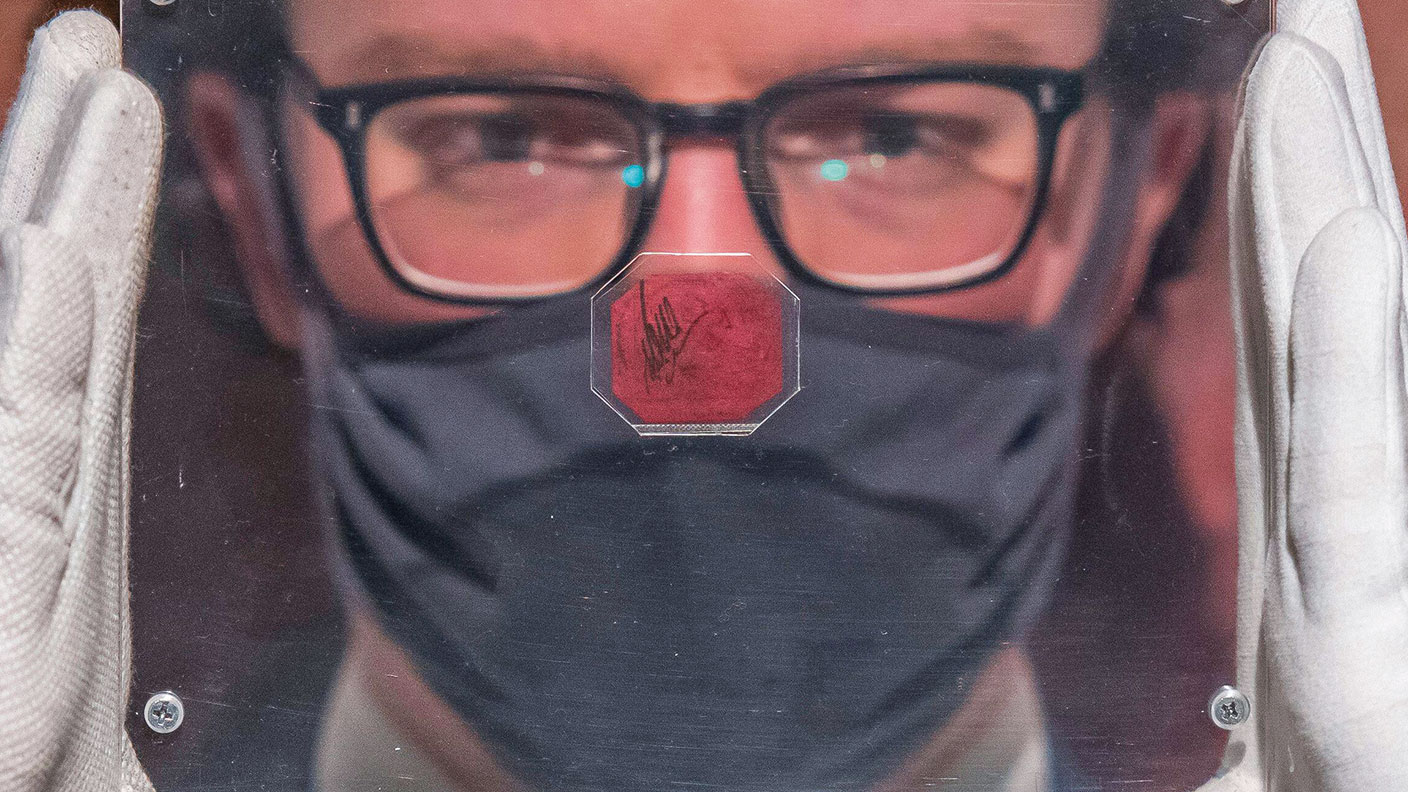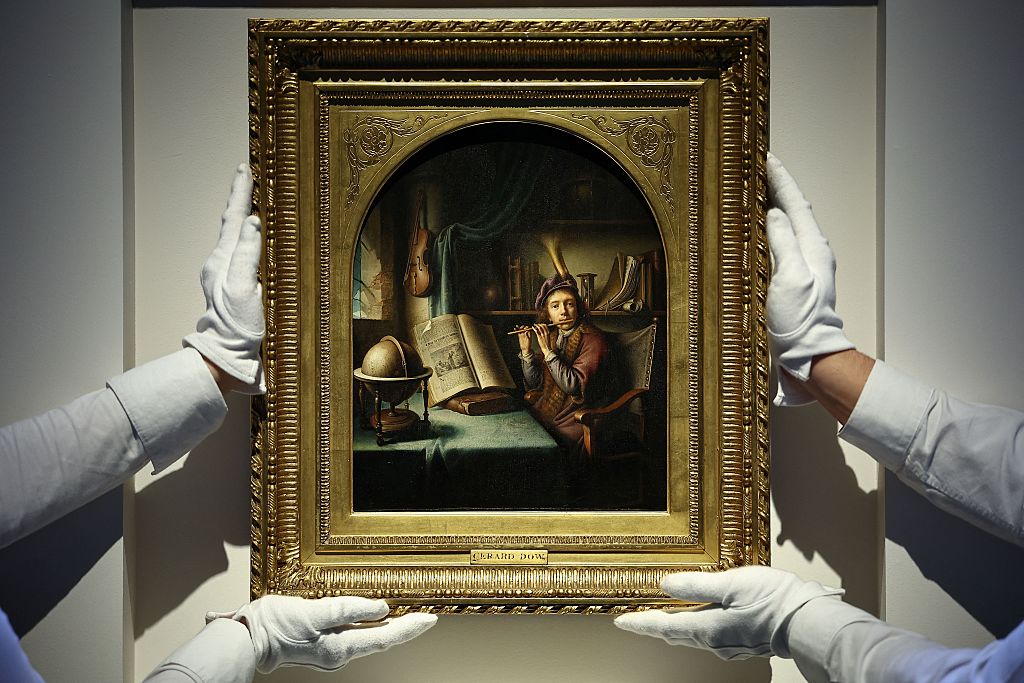Grab a piece of art – or music – with fractional ownership
Fractional ownership allows you to buy shares in assets such as stamps, paintings and music royalties, says David Stevenson.


Get the latest financial news, insights and expert analysis from our award-winning MoneyWeek team, to help you understand what really matters when it comes to your finances.
You are now subscribed
Your newsletter sign-up was successful
Want to add more newsletters?

Twice daily
MoneyWeek
Get the latest financial news, insights and expert analysis from our award-winning MoneyWeek team, to help you understand what really matters when it comes to your finances.

Four times a week
Look After My Bills
Sign up to our free money-saving newsletter, filled with the latest news and expert advice to help you find the best tips and deals for managing your bills. Start saving today!
Last week brought exciting news for stamp collectors such as yours truly. Stanley Gibbons has purchased the world’s most famous and valuable stamp: the unique 1856 One-Cent Magenta from British Guiana. The rare-stamp dealer bought it at auction in the US for $8.3m. Even more exciting, however, is that the group will not only display the stamp at its flagship store on the Strand, but is also planning to allow “everybody to enjoy owning a piece of this unique and storied item through the increasingly popular concepts of fractional ownership and the creation of digital collections.”
The key phrase here is “fractional ownership”, an idea whose time has come in the digital age. A valuable asset such as a stamp, an artwork or even a music royalty-stream is difficult to break up and sell on to private investors. But the owner of the asset can create a form of special-purpose vehicle (SPV), which then sells “shares” of that asset to investors. The internet also facilitates the creation of a secondary market for the asset: buyers and sellers can arrange to deal with each other.
In art, for instance, there is a US platform called Masterworks, which is open to UK investors. The minimum investment for foreigners is $5,000 and you have to undergo an interview with the platform to check that you understand the market.
MoneyWeek
Subscribe to MoneyWeek today and get your first six magazine issues absolutely FREE

Sign up to Money Morning
Don't miss the latest investment and personal finances news, market analysis, plus money-saving tips with our free twice-daily newsletter
Don't miss the latest investment and personal finances news, market analysis, plus money-saving tips with our free twice-daily newsletter
Nevertheless, the idea is simple. Find a blue-chip artist who has a strong market for their work and then sell shares in their paintings. Artists have included Andy Warhol, Keith Haring, Picasso, Banksy and Monet. The most recent deal I can see is for Agnes Martin and Untitled #12 (1988), an acrylic and graphite on canvas. This was sold for $5,218,650 on 29 June, 2020.
You can also download a detailed dealsheet which gives you more information on the work. This in turn highlights an estimate suggesting that the annual appreciation of similar works has been running at 14.3%. That estimate is in turn derived from a price database compiled by analysing three million data points from over 300,000 auction transactions going back to 1960. Around $68bn worth of art changed hands in 2019.
Do your homework on fees
According to research from Citi Private Bank, meanwhile, the broad art market has “risen at an annualised rate of 5.3% since 1985, similar to the return of developed investment-grade fixed-income (6.5%) and high-yield fixed-income (8.1%)”. To date on the Masterworks platform more than $150m in paintings has been purchased, with holding periods typically between three and ten years.
As with all fractional schemes you really need to do your homework on fees, how the assets are held in trust and your ability to sell out at some stage. But modern art strikes me as a blue-chip, inflation-proofed asset with little correlation to equities.
There is also a vibrant market in music rights, as any investor in the hugely successful music-fund royalty sector will attest; the key players are the Hipgnosis Songs and the Round Hill Music funds. The idea here is to tap income from the various music-revenue streams. Hipgnosis and Roundhill do all that hard work of music selection for you, but you can also trade in individual fractional shares of music-income streams via internet platforms. The pioneer in this sector is Royalty Exchange. It now sells shares not just in music but also in films and trademarks. Non-US investors can invest in the assets on this platform but they are subject to punitive withholding taxes.
A European alternative (based in Luxemburg) has emerged in the shape of ANote Music, an online web-based proprietary trading platform for transfers and/or trading of royalty interests. It offers two ways in for British investors. One is via its primary (mostly auction-based) market, where publishers and record labels sell a percentage of the future royalty generation of music catalogues that display solid profiles of historical royalty flows. Then there is its secondary market, where investors trade shares of music catalogues among themselves. ANote Music manages the platform, organising the listings in the primary market, receiving royalty payments from distributors and circulating them to investors.
The emphasis is more on niche European music markets than mainstream Anglo-Saxon ones. One recent deal sums up the model. The platform recently listed music from an Italian duo, Zero Assoluto. I’ve never heard of them or their songs but they seem big in Italy. What is interesting is the level of detail you see on these deals. In this case they are listing a 15% share of their royalties.
ANote reckons that over “a three-year period, Zero Assoluto’s catalogue has generated royalties averaging €41,480.59 and an impressive €39,988.04 over the past year. With a total listing valuation of €579,027, the listing is set at an entry multiple of 14.50 over the last 12 months’ royalties, resulting in an expected yield for investors of 6.90%.” That yield seems fairly standard for this platform. Although these income streams will vary over time, this should be a relatively inflation-proof bunch of assets and a focus on less mainstream music could prove a useful diversifier for the income investor.
Get the latest financial news, insights and expert analysis from our award-winning MoneyWeek team, to help you understand what really matters when it comes to your finances.

David Stevenson has been writing the Financial Times Adventurous Investor column for nearly 15 years and is also a regular columnist for Citywire.
He writes his own widely read Adventurous Investor SubStack newsletter at davidstevenson.substack.com
David has also had a successful career as a media entrepreneur setting up the big European fintech news and event outfit www.altfi.com as well as www.etfstream.com in the asset management space.
Before that, he was a founding partner in the Rocket Science Group, a successful corporate comms business.
David has also written a number of books on investing, funds, ETFs, and stock picking and is currently a non-executive director on a number of stockmarket-listed funds including Gresham House Energy Storage and the Aurora Investment Trust.
In what remains of his spare time he is a presiding justice on the Southampton magistrates bench.
-
 Can mining stocks deliver golden gains?
Can mining stocks deliver golden gains?With gold and silver prices having outperformed the stock markets last year, mining stocks can be an effective, if volatile, means of gaining exposure
-
 8 ways the ‘sandwich generation’ can protect wealth
8 ways the ‘sandwich generation’ can protect wealthPeople squeezed between caring for ageing parents and adult children or younger grandchildren – known as the ‘sandwich generation’ – are at risk of neglecting their own financial planning. Here’s how to protect yourself and your loved ones’ wealth.
-
 Adventures in Saudi Arabia
Adventures in Saudi ArabiaTravel The kingdom of Saudi Arabia in the Middle East is rich in undiscovered natural beauty. Get there before everybody else does, says Merryn Somerset Webb
-
 Review: Constance Moofushi and Halaveli – respite in the Maldives
Review: Constance Moofushi and Halaveli – respite in the MaldivesTravel The Constance resorts of Moofushi and Halaveli on two idyllic islands in the Maldives offer two wonderful ways to unwind
-
 Affordable Art Fair: The art fair for beginners
Affordable Art Fair: The art fair for beginnersChris Carter talks to the Affordable Art Fair’s Hugo Barclay about how to start collecting art, the dos and don’ts, and more
-
 Review: Gundari, a luxury hotel in the Greek island of Folegandros
Review: Gundari, a luxury hotel in the Greek island of FolegandrosNicole García Mérida stayed at Gundari, a luxurious hotel on Folegandros, one of the lesser-known islands in the southern Cyclades in Greece
-
 Fine-art market sees buyers return
Fine-art market sees buyers returnWealthy bidders returned to the fine-art market last summer, amid rising demand from younger buyers. What does this mean for 2026?
-
 Review: Castiglion del Bosco, A Rosewood Hotel – a Tuscan rural idyll
Review: Castiglion del Bosco, A Rosewood Hotel – a Tuscan rural idyllTravel Play golf, drink exquisite wine and eat good food at Castiglion del Bosco, A Rosewood Hotel, all within the stunning Val d’Orcia National Park in Tuscany
-
 Review: A cultural tour of North India
Review: A cultural tour of North IndiaTravel Jessica Sheldon explores North India's food and art scene from three luxurious Leela Palace hotels in New Delhi, Jaipur and Udaipur
-
 The best luxury saunas, spas and icy plunges
The best luxury saunas, spas and icy plungesRestore your mind and body with luxury fire and ice experiences, from warming saunas to icy plunges